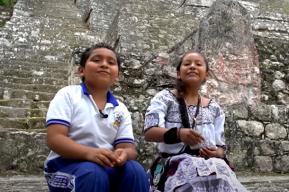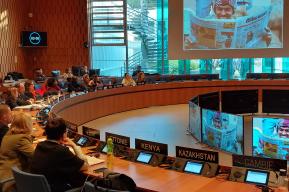Article
UNESCO reiterates the need to promote gender-sensitive access to information laws

Laura Neuman, director of the Rule of Law Program at the Carter Centre and author of an upcoming policy brief on Promoting Gender Equity in the Right of Access to Information, presented challenges faced by women in exercising their right to information. These challenges that women face while requesting information, include: fear of retaliation, lack of ICT skills and a negative mind-set of public officials.
Blanca Lilia Ibarra Cadena, President Commissioner of Mexico's National Institute for Transparency, Access to Information and Personal Data Protection, reiterated in her intervention that women face barriers throughout the world and that inclusive, participatory democracy cannot be reached without legal institutions responding to challenges of inequalities and injustice. Suraya Begum, Information Commissioner from Bangladesh, gave an example: Bangladesh has access to information law since 2009, but disaggregated data indicates that participation of women, in terms of filing in an information request, is as low as 10%.
The webinar recommendations to encourage national governments to develop and promote gender-sensitive access to information laws, policies and their implementation. A good example is the Inter American Modern Law 2.0 on Access to Public Information, which includes several gender-oriented provisions that strengthen equality of the process of accessing information for women.
Also on the international front, legal instruments have been relatively silent about women's right to access to information and miss out on mentioning the comprehensive benefits that information can provide to women. Panellists agreed that systematic mainstreaming of women’s access to information is necessary at all relevant UN agencies, programmes and funds, and through UN interagency coordination mechanisms.
The webinar was organized within the framework of UNESCO’s support of inclusive policy development and equality and better access to information for all, including women. UNESCO as the designated UN agency custodian of SDG indicator 16.10.2 on public access to information, plays an important role in advocating for public institutions, international bodies, and civil society to incorporate a gender vision, when considering the right to information.








